Deep within our very being lies a fascinating and mysterious realm called the shadow self. It’s like that hidden side of ourselves that we don’t often talk about—the part that holds our suppressed emotions, secret desires, and untapped potential.
Think of it as a secret stash of who we truly are, waiting to be discovered and embraced. Now the million-dollar question is how to identify your shadow self.
Spotting the shadow self isn’t about diving into the abyss or anything too heavy. It’s more like playing a game of hide-and-seek with our own thoughts, feelings, and actions.
You can catch glimpses of it through little clues and patterns that pop up in your everyday lives. It’s like those “a-ha!” moments when we suddenly realize, “Wait, why did I react like that? What’s really going on here?”
So, let’s embark on this exciting journey together! We’ll explore 7 ways to spot your shadow self or how to identify the shadow self below. It’s like turning on a flashlight in the dark corners of your mind, shining a light on the parts you may have overlooked.
Get ready to uncover some intriguing aspects of yourself as we dive into the realm of the shadow self.
Related: Unveiling Your Shadow Self: What This Abstract Image Test Reveals About Your Subconscious
What Is Shadow Self?
So, picture this: you have this secret side to yourself called the shadow self. It’s like the hidden part you don’t usually talk about—the stuff you’ve pushed down or ignored. You know, those traits, emotions, and desires that society might frown upon or that you just don’t want to face.
Here’s the thing: the shadow self isn’t all dark and gloomy. It’s a mix of both good and not-so-good stuff. It’s like a treasure trove of hidden talents, wild instincts, and untapped passions we haven’t fully embraced.
Now, here’s where it gets interesting. Exploring the shadow self is like embarking on a personal adventure. It’s about shining a light on those hidden parts, understanding them, and accepting them as part of who you are. It’s a journey of self-discovery, growth, and, let’s be real, some serious soul-searching.
But hey, embracing our shadow self is pretty awesome. It’s a chance to become more whole, authentic, and in touch with our true potential.
Now let’s find out how to identify the shadow self or more specifically, how to identify your shadow self.
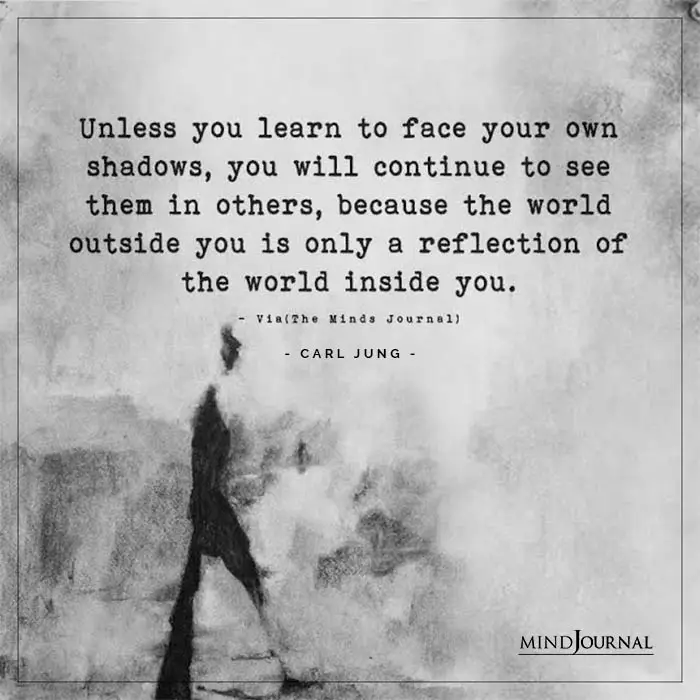
How To Identify The Shadow Self? 7 Ways To Spot Your Shadow Self
1. You are always judging and criticizing people.
How to identify your shadow self? Look out for one of the biggest examples of shadow self below!
If you catch yourself constantly judging and critiquing other people, it might just be a sign that your shadow self is making an appearance. Yup, those harsh judgments you throw around can actually be projections of your own hidden qualities.
It’s like you’re pointing fingers at others to avoid facing those parts of yourself that you find uncomfortable or don’t want to admit exist.
Next time you catch yourself in judgment mode, take a breather and ask yourself what triggered that reaction. Is there something about that person that’s hitting a nerve? Could it be a reflection of something you’re denying within yourself? It’s like shining a light on the shadowy corners of your mind.
By being aware of your tendency to judge, you open up a path for self-discovery and acceptance. You start embracing those neglected parts of yourself, leading to personal growth and a deeper understanding of who you really are.
So, let’s ease up on the judgments, show yourself some compassion, and embark on a journey of self-reflection.
2. You always like to play the victim.
So, if you often find yourself stuck in the “playing the victim” mode, it’s like a red flag waving, signaling the presence of your shadow self. It’s a pattern where you tend to cast yourself as the helpless, blameless victim in every situation, leaving you feeling trapped and disempowered.
Take a moment to reflect on those times when you feel like life is constantly conspiring against you and you have no control over your circumstances. It’s that recurring narrative where you believe you’re always at the mercy of external forces.
But here’s the thing: by playing the victim, you unconsciously avoid taking responsibility for your own actions and choices. It’s a way of sidestepping accountability and staying in our comfort zone.
How to deal with your shadow self? Take a step back and ask yourself why you’re always painting yourself as the innocent victim. Is there something deeper going on? Are there hidden fears or insecurities that you’re trying to avoid?
Spotting your shadow self means taking ownership of your actions and reactions. It’s about recognizing that we all have a role to play in our experiences. So, let’s ditch the victim mentality, embrace our power, and start living life on our own terms!
Related: How To Manage Your Dark Side – 10 Tips To Embrace Your Shadow Self
3. You troll and insult others on social media platforms.
Okay, let’s get real here. Trolling and hurling insults at others on social media platforms, is a strong indication that your shadow self is making a not-so-pretty appearance.
Yeah, it’s like this dark side that gets a twisted satisfaction out of belittling and tearing others down from behind the safety of a screen.
This is one of the best signs to look out for if you are wondering how to identify your shadow self.
Pay attention to those moments when you feel the urge to engage in online battles or throw shade at people you disagree with. It’s like this compulsion to put others down and assert superiority. But guess what? It’s often a reflection of your own insecurities and unexpressed frustrations.
Instead of getting caught up in the trolling game, why not channel that energy into self-reflection and personal growth? Embrace empathy, understanding, and open-mindedness. Let’s use social media as a platform for connection and positivity, rather than feeding our shadow selves.
4. You struggle with setting strong boundaries.
If you are thinking about how to identify your shadow self, then observe how good or bad you’re at setting boundaries.
Struggling to set strong boundaries, is a flashing neon sign that your shadow self might be in the driver’s seat. Unsurprisingly, this is one of the major examples of shadow self. It’s like this tendency to let people walk all over you or invade your personal space without so much as a “Hey, back off!”
Observe these moments carefully when you feel overwhelmed, taken advantage of, or find yourself sacrificing your own needs to please others. It’s like you’ve become the human welcome mat, always putting everyone else’s needs ahead of your own.
But here’s the thing: setting boundaries is crucial for your well-being and self-respect. Embrace the power of saying “no” and honoring your own needs and limits. It’s time to establish healthy boundaries that protect your energy and allow you to live authentically.
Remember, setting boundaries isn’t selfish—it’s an act of self-care and self-love. So, stand tall, my friend, and let your inner strength shine through!
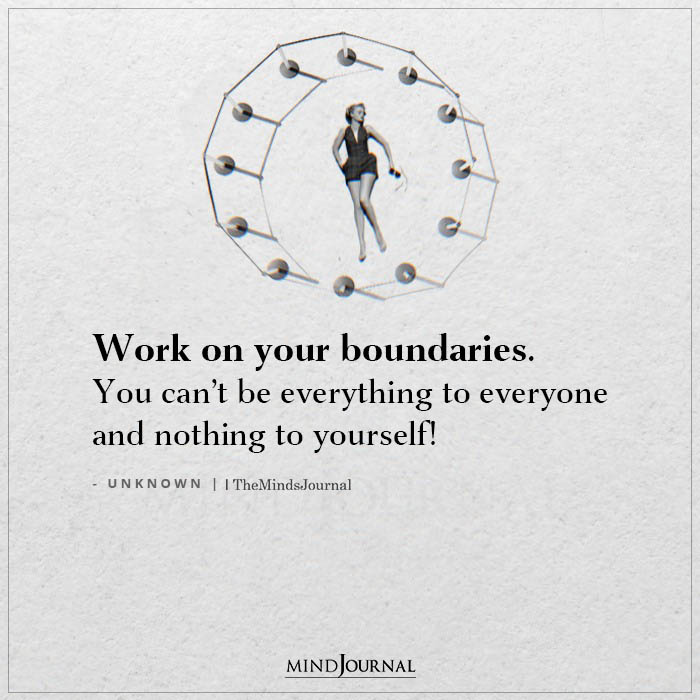
5. You let your triggers get the best of you.
How to identify the shadow self? Observe if this keeps on happening to you.
If you find yourself constantly letting your triggers hijack your emotions and reactions, it’s a clear sign that your shadow self is lurking in the shadows. Yeah, it’s like those little buttons that people push, and suddenly you’re a ticking time bomb, ready to explode.
Take a step back and notice when someone or something sets you off and you react with intensity, anger, or defensiveness. It’s like your triggers have this magical power to take control of your emotional state and turn you into a completely different person.
Ask yourself why those triggers affect you so deeply. Is there a hidden wound, fear, or insecurity that’s being poked? It’s like a treasure map leading you to the unhealed parts of yourself.
Instead of letting your triggers rule the show, reclaim your power! Take a moment to breathe, reflect, and respond consciously rather than reactively. By addressing and healing those trigger points, you can regain control over your emotions and find a greater sense of inner peace.
Remember, you have the power to rise above your triggers and choose a more empowered and balanced way of being.
Related: Shadow Self: 3 Ways To Embrace Your Inner Darkness
6. You tend to project your problems on other people.
If you catch yourself constantly projecting your problems onto other people, it’s a surefire sign that your shadow self is playing some sneaky tricks on you. It’s like this unconscious habit.
Pay close attention when you find yourself pointing fingers and attributing your problems or frustrations to someone else. It’s like this twisted game of hot potato where you’re trying to pass off your own baggage onto unsuspecting recipients.
But here’s the deal: projection is a defense mechanism, a way of avoiding taking responsibility for our own stuff.
Spotting your shadow self means taking a good, hard look in the mirror and asking yourself why you’re so quick to project onto others. Are there parts of yourself that you’re not willing to confront? Maybe it’s easier to see those issues in someone else rather than looking within.
By addressing and working through your own problems, you can cultivate a greater sense of self-awareness, growth, and personal empowerment. It’s time to ditch the projection game and own your truth, my friend!
7. You take out your anger and frustrations on people under your command.
Wondering how to identify your shadow self? Look out for this sign.
Unleashing your anger and frustrations on people under your command is one of the most glaring examples of shadow self. It’s like this ugly side that shows up when you let your emotions get the best of you and take it out on those who are in a subordinate position.
It’s like your anger becomes a weapon, and those around you bear the brunt of it. But here’s the thing: taking out your frustrations on others is a sign of unresolved issues within yourself.
Is there something triggering you that goes beyond the current situation? Are there unresolved wounds or insecurities that you’re projecting onto those under your command?
How to deal with your shadow self? Instead of letting your anger control your actions, embrace self-awareness and find healthier ways to cope with your frustrations. Seek support, practice mindfulness, and learn to communicate assertively and compassionately.
By addressing your own anger, you can foster a more positive and harmonious environment for everyone involved. It’s time to lead with understanding, empathy, and personal growth.
How To Deal With Your Shadow Self?
Now that you know the 7 ways to spot your shadow self and how to identify your shadow self, let’s find out some of the best ways how to deal with your shadow self.
- Recognize the existence of your shadow self.
- Accept and embrace its presence as a natural part of your being.
- Engage in self-reflection to identify shadow patterns and triggers.
- Take responsibility for your own thoughts, emotions, and actions.
- Seek therapy or counseling to delve deeper into shadow work.
- Practice self-compassion and forgiveness towards yourself and others.
- Develop mindfulness and self-awareness to catch shadow tendencies in the moment.
- Engage in creative outlets or journaling to express and explore your shadow aspects.
- Surround yourself with a supportive community or mentor who understands shadow work.
- Commit to ongoing personal growth and integration of your shadow self, knowing it is a lifelong journey.
Related: Shadow Work: How to Let Your Inner Demons Guide You
Takeaway
Once you know how to identify your shadow self it is like unraveling a fascinating mystery within yourself. It’s like becoming your own detective, shining a light on those hidden parts of you that often go unnoticed.
Remember, it’s not about being hard on yourself or judging those shadow aspects. It’s about embracing them with curiosity and compassion.
So keep an eye out for those signs! Whether it’s the habit of judging others, playing the victim, or even trolling on social media, these clues can lead you straight to your shadow self. But don’t fret! Once you spot it, you’ve got the power to transform and grow.
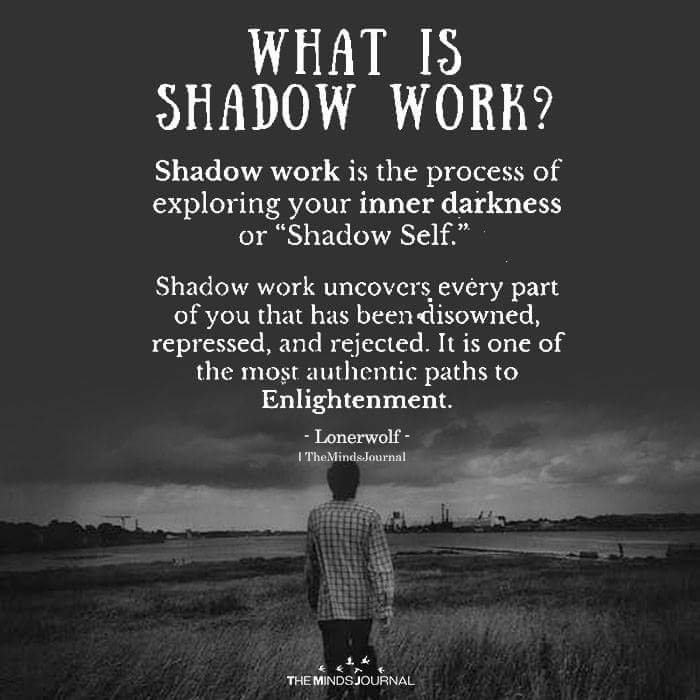
Embrace your triggers, set those boundaries, and take ownership of your projections. It’s a journey that might have twists and turns, but trust me, the rewards are worth it. Embrace your shadows, my friend, and watch as you shine even brighter.
Do you have any more examples of shadow self that our readers should know about? Let us know your thoughts in the comments down below!
Want to know more about how to identify your shadow self? Check this video out below!
Frequently Asked Questions (FAQs)
How can I see my shadow self?
To see your shadow self, look within with honest introspection and explore the unacknowledged aspects of your personality, emotions, and behaviors that you tend to suppress or reject.
Is your shadow self your ego?
No, your shadow self and ego are not the same. Your shadow self refers to the unconscious or suppressed aspects of your personality, while the ego represents your conscious sense of self and identity.
Is your shadow self evil?
No, your shadow self is not inherently evil. It consists of aspects that are often hidden, repressed, or deemed socially unacceptable, but understanding and integrating it can lead to personal growth and wholeness.
What should I ask my shadow self?
Ask your shadow self about its fears, desires, and the lessons it holds for you, fostering a dialogue that brings awareness and facilitates the integration of its hidden aspects into your conscious awareness.
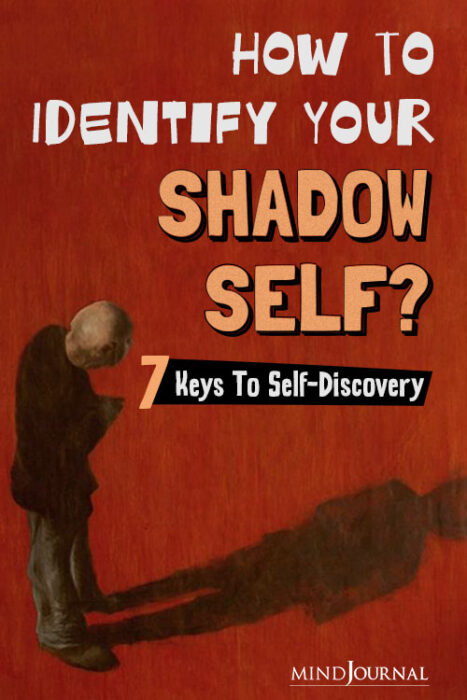
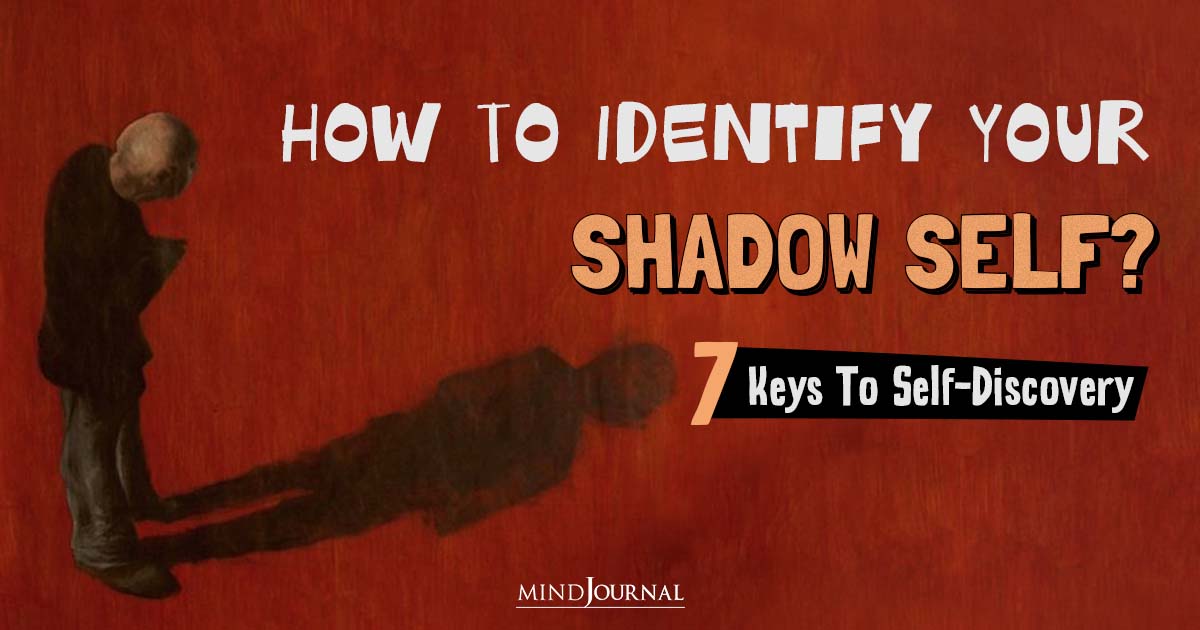







Leave a Reply
You must be logged in to post a comment.